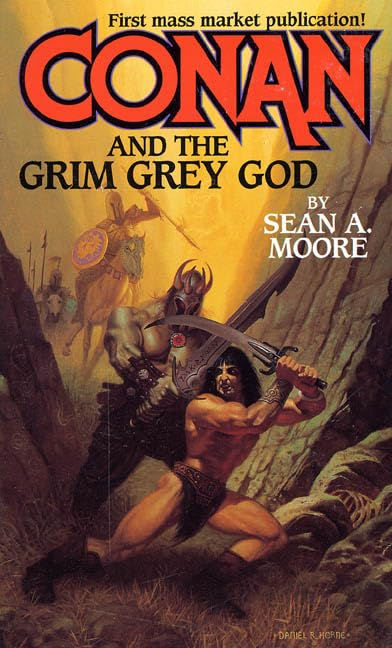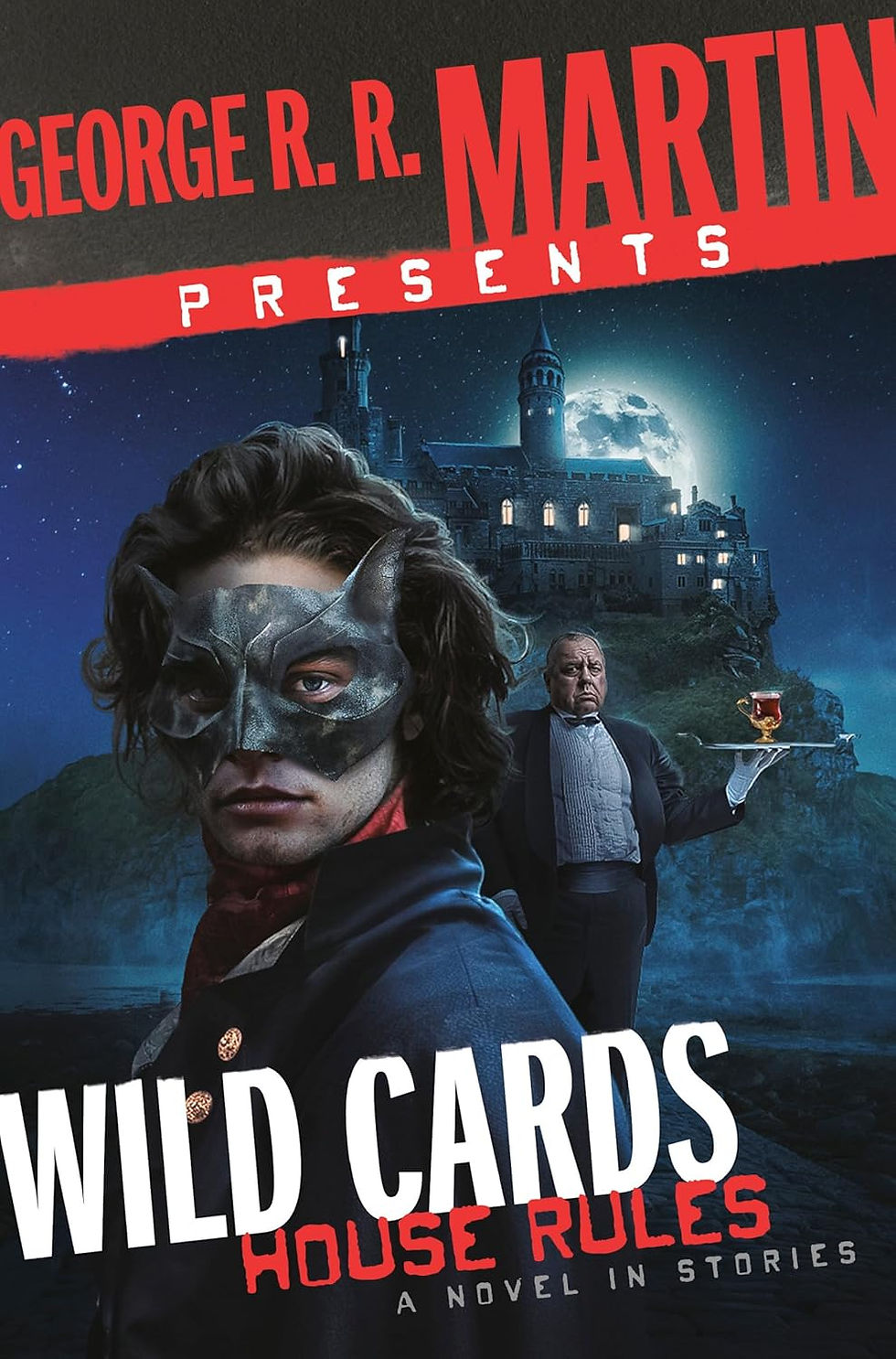Joker Moon: The Next Phase of Wild Cards
- Greg O'Driscoll
- Jan 12, 2023
- 5 min read
Updated: Sep 23, 2025
Joker Moon
edited by George R.R. Martin
assisted by Melinda M. Snodgrass
For me, it can get a little tricky figuring out the number and publication order, but Joker Moon is (I think!) the twenty-ninth book in the long running Wild Cards series. How a reader experiences this book will depend on whether or not this is the first time they have read Wild Cards. For new readers, this might be a good jumping on point, though they will have to make the decision of whether to wait for the next book or dive into the extensive backlog available.
I've been a fan since the late '80s, so I approach it with a certain mixture of excitement and fatigue. I'm always glad for a new Wild Cards book. The problem is, I've been playing armchair quarterback with the series for so long I'm a touch jaded. A newer reader can get lost in some of the terminology and series lore but only briefly. The various authors provide enough context in a casual enough manner to get newbies up to speed without hitting them over the head with things.
In 1946, an alien virus is released into Earth's atmosphere. 90 of every 100 infected die horribly; the Black Queen. Of the 10 who live, 9 become mutated freaks; jokers. One lucky victim gains metahuman powers; an ace. History is irrevocably altered, yet still follows the same general outlines we know from our own world. That's about all you need to know to get started.

As the title suggests, Joker Moon, like the much earlier Jokertown Shuffle, shifts the focus more intensely onto the jokers this time. For the long term reader more similarities than just the titles quickly become apparent. In Jokertown Shuffle, Theodor Honorlaw a.k.a. Bloat, a huge slimy joker that secretes "bloatblack", leads a rebel encampment of Wild Card criminals from a secret base on the Rox (formerly Ellis Island). In Joker Moon, Theodorus Witherspoon, a huge slimy snail-like joker that secretes "Witherslime", seeks to establish a rebel colony on the moon with the help of some Wild Card criminals. It would be tempting to say these are just coincidental similarities. In just a moment, l'll get to why it seems like much more than a passing similarity.
The other major player in Joker Moon is Aarti, a joker woman from India whose particular manifestation of the virus allows her to visit and survive upon Earth's only natural satellite well before anyone else ever gets there. While on the moon, Aarti's powers increase considerably. Before the virus upended her life she had enjoyed painting, which means she can now literally paint things into existence upon the lunar surface. Now might be the time to mention that Bloat also enjoyed painting, and his own powers eventually increased to such a level that he too could make visions into reality.
So the two arguably most important jokers of Joker Moon seem like an editorial transporter accident split Bloat in two. However, Joker Moon employs an extended timeline that stretches from the first release of the Wild Card virus up to the present day. This effectively backdates both characters to predate Bloat, which creates a mild dissonance, at least for this returning fan.
It seems as if the authors (or the editors that guide the series) wanted a do-over. Not that anyone could blame them. Jokertown Shuffle remains possibly the grimmest, most controversial, even hated volume in a series that has never shied away from a grim and gritty take on superheroes. I won't get into the specifics here-- that would take an entire article all of its own. It is enough to say that Joker Moon is significantly lighter in tone and presentation, a much more optimistic foray into what would happen if the misshapen and mistreated jokers tried to establish a homeland. Of course, it does say something that the jokers had to leave the planet entirely in the attempt.
Stories of establishing off-world colonies, which is ultimately what Joker Moon is about, have a certain aspirational optimism built into their DNA. I won't say it is a total about face, but Joker Moon hearkens back to a kind of sci-fi that was already somewhat dated when Wild Cards first debuted. There is a certain "Golden Age of sci-fi" to how easily some things happen, the way rough patches in the road are quickly smoothed over.
Things do gradually pick up steam. The final battle-- I won't spoil the location and participants here-- is worth the wait. Unfortunately, the somewhat slack front half of Joker Moon makes the back half too busy, too crowded. Tornado-like, a sense of danger and excitement appears as if from nowhere and then dissipates just as quickly.
Joker Moon's real strength is in the intriguing concept, strong characterization, some fun Easter eggs that reward older fans, and a willingness to explore corners of the WC universe thus far overlooked. It is a gentler sort of tale than the grand guignol of Jokertown Shuffle and genuinely touching in places. Aarti's story especially is built upon personal growth and overcoming loss rather than danger and white-knuckle excitement. This isn't a bad thing. Even so, my favorite parts featured the Russian wild cards. In the space of a few chapters a lot of background is filled in on a formerly blank corner of the WC setting.
It was always strange to me how little post-virus Russia figured in the early novels. Wild Cards appeared in the 80s, like other "realistic" takes on superheroes. Tensions with Russia featured heavily in Moore's Watchman and to a lesser degree, Miller's Dark Knight Returns. Commies were the go to bad guys back then. Wild Cards had a couple Soviet aces and not much else. Joker Moon makes up for this with some cameos by those Soviet aces and several new Star Gifted (the Russian term for wild cards). It seems the commies discovered some jokers are better suited for space exploration before the jokers took matters into their own hands. Happily, most of these new characters are not cardboard villains.
I won't dwell on what I don't like. Taking my cue from Joker Moon, I'll let my focus remain on the positives. It is a solid entry in the series, and it features the final (posthumously completed) story by one of the series founders, Victor Milan. For newer readers I would suggest tracking down the original three books, but you could do worse than to start here. If you get infected with the Wild Card bug there will be plenty more for you to enjoy.



Comments